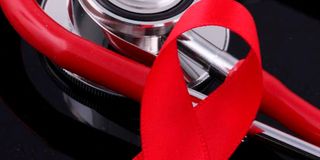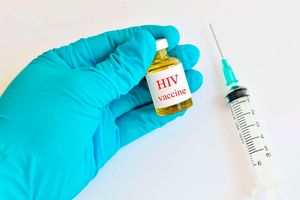HIV 40 years on: Basic reminders about transmission modes and prevention

Using condoms every time you engage in sexual intercourse will reduce the chances of acquiring or transmitting HIV infection.
What you need to know:
- There are many ways of preventing HIV transmission.
While these tips will reduce your risk, always remember that abstinence is the only fully effective way to avoid contracting or transmitting HIV.
The Human Immunodeficiency Virus, or HIV, is transmitted through blood, breast milk, vaginal fluids, and semen.
Ways of transmission
- Sharing needles and other equipment used to inject drugs such as heroin.
- Having unprotected sex with someone who is HIV positive.
- Piercing or tattooing with unsterilised equipment (for example, sharing a tattoo needle).
- A mother can transmit HIV to her baby during pregnancy, birth, or breastfeeding.
Ways HIV cannot spread
- Casual contact such as touching the skin of someone living with HIV.
- Eating food prepared by a person infected with the virus or drinking from the same glass.
- Sneezing or coughing on someone.
- Sharing toilets, bathrooms, combs, or swimming pools.
- Hugging someone who is living with HIV/AIDS.
- Sitting next to a person living with HIV.
What increases the risks of HIV infection?
- The viral load
Viral load refers to the amount of virus in the blood of an HIV-positive patient. A high viral load means there are more viruses in the body. This may increase the chances of passing HIV onto someone else during sex, breastfeeding, or sharing needles.
HIV treatment (antiretroviral therapy or ART) lowers the virus in the blood and body fluids, making it very unlikely that the virus will be passed on to others. Therefore, adhering to HIV/AIDs treatment lowers the viral load making it less likely to transmit.
- Sexually transmitted diseases
Having an STD like chlamydia, gonorrhoea, or herpes increases the risk of contracting HIV. This is because these STDs make it easier for the virus to enter your body by causing small tears in the genitals and allowing higher concentrations of the virus.
STD testing and treatment may help you prevent HIV and other infections.
Condoms minimise your risk of acquiring or passing STDs that may be transmitted via genital fluids, such as gonorrhoea, chlamydia, and HIV.
However, infections transmitted through tears on the skin (genital herpes, syphilis, and HPV) may not be prevented by condoms.
- Alcohol and drug abuse
The use of alcohol or drugs can impair judgment.
It is more likely that someone under the influence will engage in high-risk behaviour like unprotected sex, leading to HIV infection, than someone who is not under the influence of alcohol.
Using drugs that require injections increases the risk of contracting HIV. This is a widespread habit among drug addicts. Avoid using needles and syringes that have been used by someone else.
Prevention Methods
- Using condoms every time you engage in sexual intercourse will reduce the chances of acquiring or transmitting HIV infection.
- Limit your number of sex partners because each new partner increases the likelihood of contracting or transmitting HIV.
- Get tested for STDs and HIV at least twice a year.
- Avoid sharing needles with others to prevent the transmission of blood-borne infections like HIV/AIDS.
- Adhering to HIV medication lowers the viral load making it less likely to transmit.
- Abstain from sexual activities, especially children below legal age.
- Avoid engaging in risky behaviours such as alcohol and drug abuse because they increase the chances of contracting and transmitting HIV infection via unprotected sex and injections.
- If you suspect that you have been infected, consult the doctor immediately for post-exposure prophylaxis (PEP). It entails the use of antiretroviral medicines to prevent HIV seroconversion.
Note: PEP should be administered within 72 hours of possible exposure.



